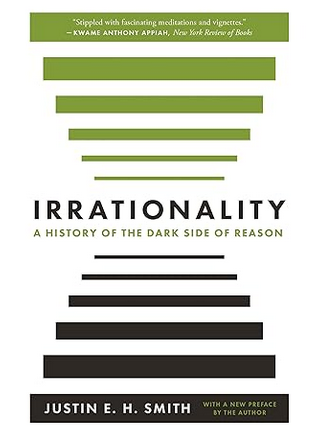The Dark Side of Reasoning: How Rationality Leads to Irrationality
In our modern world, rationality is often held up as the gold standard for decision-making and problem-solving. It is the cornerstone of science, philosophy, and even everyday life. Yet, as Justin Smith-Ruiu explores in his thought-provoking book Irritionality: The Dark Side of Reasoning, the very tools we use to think rationally can sometimes lead us astray, plunging us into irrationality. This paradoxical relationship between reason and irrationality reveals a darker side of human cognition, one that is often overlooked in our celebration of rationality.
The Illusion of Rationality
At first glance, rationality seems like an unalloyed good. It promises clarity, objectivity, and the ability to make sound decisions based on evidence and logic. However, Smith-Ruiu argues that rationality is not a neutral or infallible tool. Instead, it is deeply intertwined with human psychology, culture, and history, all of which can distort its application. The illusion of rationality lies in the belief that it can operate independently of these influences, leading us to overestimate its power and underestimate its limitations.
One of the key insights of Irritionality is that reasoning is not a purely logical process but is often driven by emotions, biases, and social pressures. For example, confirmation bias—the tendency to seek out information that supports our preexisting beliefs—can masquerade as rational analysis. Similarly, the sunk cost fallacy, where we continue to invest in a failing endeavor because of the resources already committed, is often justified with seemingly rational arguments. In these cases, reasoning becomes a tool for self-deception rather than enlightenment.
The Overreach of Rationality
Another dark side of reasoning lies in its overreach. Smith-Ruiu highlights how the relentless pursuit of rationality can lead to irrational outcomes, particularly when it is applied to areas of life that resist quantification or logical analysis. For instance, the attempt to rationalize emotions, relationships, or artistic expression can strip them of their richness and complexity, reducing them to sterile abstractions. This overrationalization can alienate us from our own humanity, creating a sense of disconnection and meaninglessness.
Moreover, the overreach of rationality can lead to what Smith-Ruiu calls “irritionality“—a state where the tools of reason are used to justify irrational or harmful behaviors. For example, the rationalization of unethical practices in business or politics often involves sophisticated reasoning that obscures the moral dimensions of the issue. In this way, rationality becomes a smokescreen for irrationality, allowing individuals and institutions to act against their own long-term interests or the common good.
The Fragility of Reason
Smith-Ruiu also explores the fragility of reason, emphasizing how easily it can be undermined by external and internal factors. Stress, fatigue, and cognitive overload can impair our ability to think clearly, leading to irrational decisions even when we believe we are being rational. Similarly, the influence of social and cultural norms can distort our reasoning, leading us to conform to irrational beliefs or behaviors simply because they are widely accepted.
This fragility is particularly evident in the realm of collective decision-making. Groupthink, for example, occurs when the desire for consensus overrides critical thinking, leading to irrational outcomes. The same dynamics can be seen in the spread of misinformation and conspiracy theories, where seemingly rational individuals are drawn into irrational beliefs through the manipulation of reasoning processes.
The Path Forward
So, how can we navigate the dark side of reasoning and avoid the pitfalls of irrationality? Smith-Ruiu suggests that the first step is to recognize the limitations of rationality and the ways in which it can be subverted. By cultivating self-awareness and critical thinking, we can become more attuned to the biases and distortions that affect our reasoning. Additionally, we need to embrace a more holistic approach to decision-making, one that integrates reason with intuition, emotion, and ethical considerations.
Ultimately, Irritionality: The Dark Side of Reasoning serves as a powerful reminder that rationality is not a panacea. While it is an essential tool for navigating the complexities of the modern world, it must be wielded with care and humility. By acknowledging its dark side, we can strive to use reason in a way that enhances our humanity rather than undermining it. In doing so, we may find a more balanced and meaningful path forward, one that embraces both the light and the shadow of our cognitive abilities.
Image Credit : Photo by Markus Winkler

